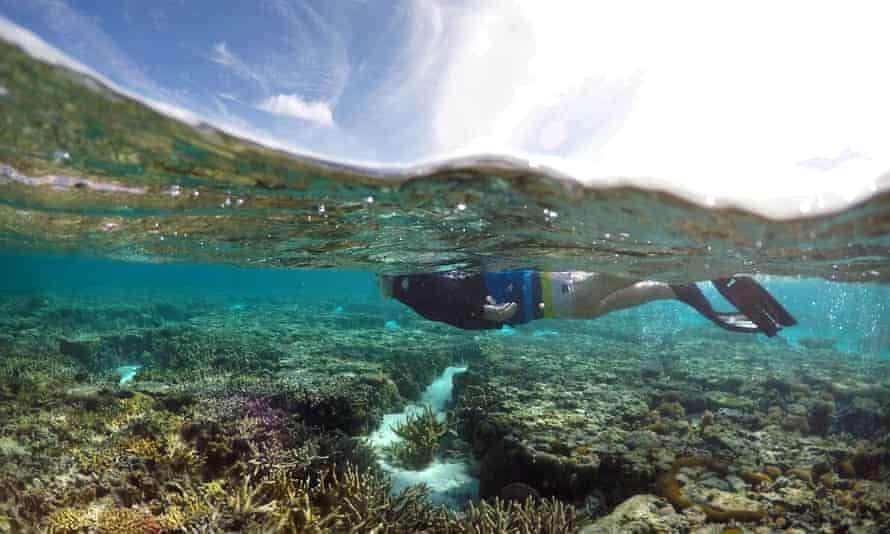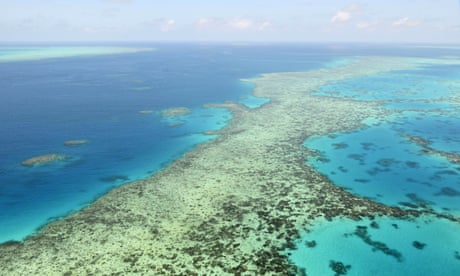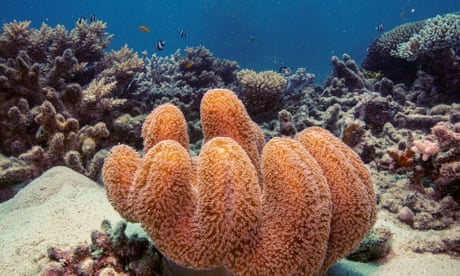Extract from The Guardian
UN body rejects claim by Australia and 11 supporters that process wasn’t followed over reef’s world heritage ‘in danger’ recommendation

Last modified on Sat 26 Jun 2021 06.27 AEST
Unesco officials have rejected concerns raised by Australia and ambassadors from 11 other countries that processes were not followed ahead of a key meeting next month that could see the Great Barrier Reef placed on a world heritage “in danger” list.
The UN body sought to reframe its recommendation to put the ocean jewel on the list as an opportunity to rally the world to lower greenhouse gas emissions and save the world’s biggest coral reef.
Dr Mechtild Rössler, director of Unesco’s World Heritage Centre in Paris, also said there had been no assurances given by her during meetings with Australian officials last May that the Great Barrier reef would be spared from the “in danger” list.
“Many governments misunderstand the danger list,” she said in an online briefing attended by Guardian Australia on Friday night.
“It is not a red list that ends up with less tourism, but it is really a call for action and that is the fundamental idea. The whole world needs to know there’s a site that’s under threat and we all have a duty to preserve [it] for generations to come.”
The United Nations Educational, Scientific and Cultural Organization (Unesco) has also warned that as the world continues to heat up, there could be more world heritage coral reefs placed on the list.
Just days after Unesco announced it was recommending the Great Barrier Reef for the “in danger” list, Australia’s Unesco ambassador in Paris, Megan Anderson, wrote to the UN body alongside 11 other countries.
One former Australian world heritage official told Guardian Australia the letter should be seen as the beginning of Australia’s promised lobbying effort to fight Unesco’s recommendation ahead of the world heritage meeting, to be chaired by China, next month.
The prime minister, Scott Morrison, described Unesco’s process as “appalling” and said Australia had been “talking to our friends”.
Only three of those countries – Spain, Thailand and Hungary – will be able to vote on the Great Barrier Reef as members of the 21-country committee.
Rössler said Unesco had replied to all the countries, outlining the processes under the convention and how they had been followed.
A May 2020 meeting with Australian officials was to discuss the practicalities of holding a virtual meeting, not to discuss the Great Barrier Reef and no assurances had been given, Rössler said.
The Australian environment minister, Sussan Ley, has said Unesco usually carried out site visits before making key recommendations.
But Rössler said this did not always occur where the evidence of “ascertained danger” was clear from reports sent to Unesco by governments, as was the case for Australia.
Dr Fanny Douvere, head of the marine program at Unesco, said there were 29 world heritage reef sites, but none had suffered three coral bleaching events in just five years, as Australia had.
“Yes, in the future over the next decades we might see other sites with similar affects [recommended for in danger], but we have to follow the guidelines,” she said.
Aside from Australia, several countries who co-signed the lobbying letter have outstanding issues with their world heritage sites.
In reports for the next committee meeting, Unesco said it “deeply regrets” that Turkey had changed the status of Istanbul’s Hagia Sophia from a church to a mosque without informing the world heritage centre.
Unesco is also recommending to next month’s committee the United Kingdom’s maritime waterfront of Liverpool be stripped entirely of its world heritage status, after being on the “in danger” list since 2012.
A fourth nomination from Thailand for world heritage status for its Kaeng Krachan forest has been recommended for deferral by Unesco.
Douvere said Australia’s reef had been well managed and $3bn had been spent on conservation efforts. But water quality targets had not been met and large parts of the reef had bleached in 2016, 2017 and 2020.
“It’s becoming increasingly expensive to restore the reef and to protect it and that’s an important story.
“This decision provides an opportunity to turn this around and to get to a future that will save the Great Barrier Reef, save the jobs and incomes and livelihoods of so many people – more than 60,000 people that depend on the Great Barrier Reef – and it will simultaneously make sure the financial investment remains doable.
“This decision is an opportunity to unite the international community and understand the window of opportunity is narrowing and the world needs to limit its emissions to 1.5C.”


No comments:
Post a Comment